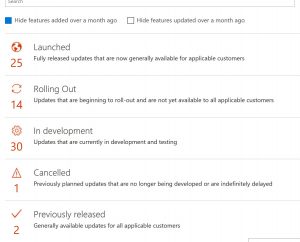Signs The Technology Revolution Is Already Here
The danger of not taking advantages of all of the tools that are available is that you will lose in one way or another.
 If you are late getting on the legal technology train, I don’t blame you at all. First, the market is full of salesmen with agendas. Most of them are not practicing lawyers or do not understand what we need as practicing lawyers. Most of them don’t understand that, even if their technology is the best, and we can afford it, and it’s compatible with other systems we have in place, we will have to spend (lose) a significant amount of money changing our ways to adopt and train our staff to adopt the newest thing. And that is all assuming that we actually spend the time to separate the wheat from the chaff and find a product that we like and that could possibly be helpful to us. And don’t forget the worry that we will adopt a program and then it will be discontinued, like LexisNexis’s Firm Manager.
If you are late getting on the legal technology train, I don’t blame you at all. First, the market is full of salesmen with agendas. Most of them are not practicing lawyers or do not understand what we need as practicing lawyers. Most of them don’t understand that, even if their technology is the best, and we can afford it, and it’s compatible with other systems we have in place, we will have to spend (lose) a significant amount of money changing our ways to adopt and train our staff to adopt the newest thing. And that is all assuming that we actually spend the time to separate the wheat from the chaff and find a product that we like and that could possibly be helpful to us. And don’t forget the worry that we will adopt a program and then it will be discontinued, like LexisNexis’s Firm Manager.
But all of these things aside, ignoring the fact that we are in a technological revolution is like ignoring the fact that winter is coming just because you don’t want it to get cold. We are in a technological revolution. The way people work and the way people practice law is different now. Regardless of whether you are 40 years out, or in your first year of law school, this should matter to you. The way clients will find you (or the reason they will ignore you and move on to someone else if they can’t find you) is different. The ways and costs of doing legal research are changing. The tools that your competitors are using to stay organized and get good results for clients and get good word of mouth are changing. We are in the middle of it, and you cannot ignore it or find excuses to hide from it. Here’s how I know:
Things Are Getting Cheaper

Early Adopters Of Legal AI Gaining Competitive Edge In Marketplace
It doesn’t matter if you are in big law, small law, or medium law — no one is going to invest in something that is really expensive if they are not sure how it works. When things were expensive, people would just not upgrade for a while. But that’s not the case anymore.
I remember the first time I tried to get practice management software for our firm back in 2007. It was several thousands of dollars, and it wasn’t even very good. Take a look at companies like Clio and MyCase. Both are in the $40 a month range and have free 30-day trials where you don’t even need to enter a credit card number. Legal research used to be prohibitively expensive. Nowadays, companies like Casetext are offering free online legal research and tools like CARA, the tool that analyzes your briefs for any missed authorities, and legal heatmaps. Adobe Acrobat was $600. Now, it’s $15 a month and comes with incredible tools for electronic signature tracking and document organization. Microsoft Office is $10 a month and comes with a terabyte of cloud storage, plus an ever-increasing list of updates.
Things are getting cheaper, and it’s making it easier for law firms to adopt them.
Things Are Changing All the Time
Sponsored

Legal AI: 3 Steps Law Firms Should Take Now

Navigating Financial Success by Avoiding Common Pitfalls and Maximizing Firm Performance

Early Adopters Of Legal AI Gaining Competitive Edge In Marketplace

Navigating Financial Success by Avoiding Common Pitfalls and Maximizing Firm Performance
Speaking of Microsoft Office, just look at how many things are being added to it. They have a site called the Roadmap where you can see what changes are on the horizon. Here’s what just the last month looked like:

Change means things are getting more efficient and doing more things. The whole purpose of legal technology is to replace the menial labor that we do in our offices, like Shepardizing cases, Bates labeling, and searching for keywords in documents. Those types of tasks are getting easier and faster, which means they are getting more accurate and reliable. They are changing so that they are easier to adopt. The pricing models are different. With subscription pricing, you are not locked into something you don’t really like. It lets people move around from technology to technology more freely, which encourages competition, which encourages good products.
Conclusion
The danger of not taking advantages of all of the tools that are available is that you will lose in one way or another. You will lose clients. You will lose cases. You will lose money. It’s not that you can’t afford to adopt the tools, it’s that you can’t afford to not adopt the tools.
Sponsored

The Business Case For AI At Your Law Firm


Is The Future Of Law Distributed? Lessons From The Tech Adoption Curve
Jeff Bennion is a solo practitioner at the Law Office of Jeff Bennion. He serves as a member of the Board of Directors of San Diego’s plaintiffs’ trial lawyers association, Consumer Attorneys of San Diego. He is also the Education Chair and Executive Committee member of the State Bar of California’s Law Practice Management and Technology section. He is a member of the Advisory Council and instructor at UCSD’s Litigation Technology Management program. His opinions are his own. Follow him on Twitter here or on Facebook here, or contact him by email at jeff@trial.technology.








